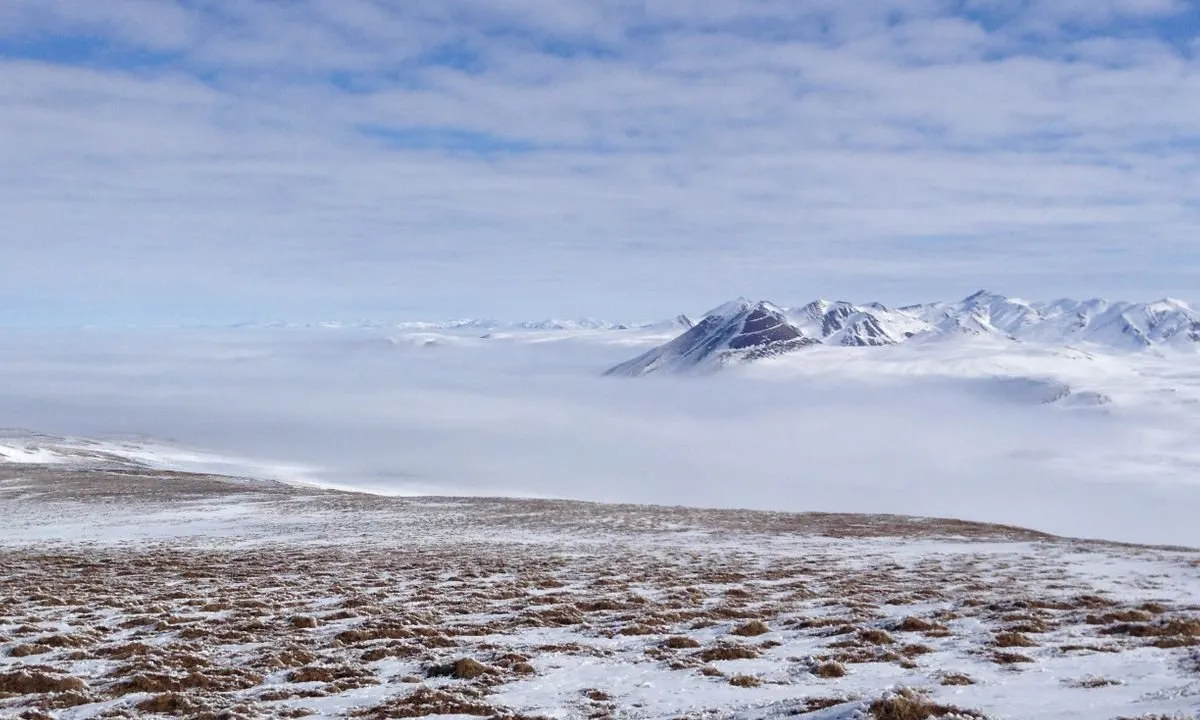
Disasters and Ecosystems: Resilience in a Changing Climate 
Discover the Disasters and Ecosystems: Resilience in a Changing Climate MOOC and gain the knowledge and skills to tackle complex issues such as resilience and transformation, sustainable development, ecosystem management, disaster risk reduction, and climate change adaptation. Learn from international experts, engage in real-life and fictitious problem solving exercises, and design your own ecosystem-based project. ▼
ADVERTISEMENT
Course Feature
![]() Cost:
Cost:
Free
![]() Provider:
Provider:
iversity
![]() Certificate:
Certificate:
No Information
![]() Language:
Language:
English
![]() Start Date:
Start Date:
12th Jan, 2015
Course Overview
❗The content presented here is sourced directly from iversity platform. For comprehensive course details, including enrollment information, simply click on the 'Go to class' link on our website.
Updated in [April 29th, 2023]
This MOOC provides an overview of the concepts of disasters, disaster risk reduction, climate change adaptation and resilience. It will benefit disaster managers and practitioners, climate change adaptation professionals, development planners, project implementers and policy makers. Through a series of lectures and case studies, quizzes, peer-reviewed exercises, along with additional study materials, participants will gain an understanding of the linkages between ecosystems, disaster risk reduction and climate change adaptation. They will also learn about the various ecosystem-based tools in reducing disaster risk and climate change adaptation, as well as key international agreements, organizations and initiatives related to disaster risk reduction, and climate change adaptation. Participants will be able to apply concepts and tools of ecosystem-based disaster risk reduction (Eco-DRR) and ecosystem based adaptation (EbA), evaluate costs and benefits of different type of measures for reducing disaster risks, and design their own ecosystem-based project for increasing resilience and reducing climate risks.
[Applications]
The application of this course can be seen in the development of strategies and plans for disaster risk reduction and climate change adaptation. Participants can use the knowledge and skills acquired to develop projects and initiatives that focus on the use of ecosystems to reduce disaster risks and increase resilience. They can also use the course to evaluate the costs and benefits of different types of measures for reducing disaster risks. Additionally, the course can be used to design projects that focus on increasing resilience and reducing climate risks.
[Career Paths]
Career Paths:
1. Disaster Risk Reduction Manager: Disaster risk reduction managers are responsible for developing and implementing strategies to reduce the risk of disasters in their communities. They work with local governments, businesses, and other stakeholders to identify potential risks and develop plans to mitigate them. They also work to educate the public about the importance of disaster risk reduction and how to prepare for and respond to disasters. As the climate continues to change, the need for disaster risk reduction managers will continue to grow.
2. Climate Change Adaptation Professional: Climate change adaptation professionals are responsible for developing strategies to help communities and businesses adapt to the changing climate. They work with local governments, businesses, and other stakeholders to identify potential risks and develop plans to mitigate them. They also work to educate the public about the importance of climate change adaptation and how to prepare for and respond to climate-related events. As the climate continues to change, the need for climate change adaptation professionals will continue to grow.
3. Sustainable Development Planner: Sustainable development planners are responsible for developing and implementing strategies to promote sustainable development in their communities. They work with local governments, businesses, and other stakeholders to identify potential risks and develop plans to mitigate them. They also work to educate the public about the importance of sustainable development and how to promote it. As the climate continues to change, the need for sustainable development planners will continue to grow.
4. Ecosystem Management Professional: Ecosystem management professionals are responsible for developing and implementing strategies to protect and manage ecosystems. They work with local governments, businesses, and other stakeholders to identify potential risks and develop plans to mitigate them. They also work to educate the public about the importance of ecosystem management and how to promote it. As the climate continues to change, the need for ecosystem management professionals will continue to grow.
[Education Paths]
Recommended Degree Paths:
1. Master of Science in Disaster Management: This degree program focuses on the management of disasters and their effects on communities, businesses, and the environment. It covers topics such as emergency management, risk assessment, crisis communication, and disaster recovery. Students will learn how to develop and implement strategies to reduce the impact of disasters and to help communities and businesses recover quickly. This degree is becoming increasingly important as the frequency and intensity of natural disasters continues to increase due to climate change.
2. Master of Science in Climate Change Adaptation: This degree program focuses on the science and policy of climate change adaptation. It covers topics such as climate science, climate change impacts, adaptation strategies, and risk management. Students will learn how to develop and implement strategies to reduce the impacts of climate change on communities, businesses, and the environment. This degree is becoming increasingly important as the world continues to grapple with the effects of climate change.
3. Master of Science in Sustainable Development: This degree program focuses on the science and policy of sustainable development. It covers topics such as environmental science, sustainable development strategies, and resource management. Students will learn how to develop and implement strategies to reduce the impacts of human activities on the environment and to promote sustainable development. This degree is becoming increasingly important as the world continues to grapple with the effects of climate change and other environmental issues.
4. Master of Science in Ecosystem Management: This degree program focuses on the science and policy of ecosystem management. It covers topics such as ecology, conservation biology, and resource management. Students will learn how to develop and implement strategies to protect and restore ecosystems. This degree is becoming increasingly important as the world continues to grapple with the effects of climate change and other environmental issues.
Course Provider

Provider iversity's Stats at AZClass
Discussion and Reviews
0.0 (Based on 0 reviews)
Explore Similar Online Courses

Brand Identity Design

Learn ARKit using Unity

Python for Informatics: Exploring Information

Social Network Analysis

Introduction to Systematic Review and Meta-Analysis

The Analytics Edge

DCO042 - Python For Informatics

Causal Diagrams: Draw Your Assumptions Before Your Conclusions

Whole genome sequencing of bacterial genomes - tools and applications

Melting Ice Rising Seas Teach-Out

Planning with Climate Change in Mind


Start your review of Disasters and Ecosystems: Resilience in a Changing Climate